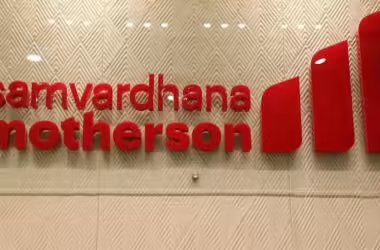[ad_1]
About 18 months ago, thousands of farmers congregated at the borders of Delhi to protest against three central enactments, colloquially termed as the “farm laws”. This assembly utilised modern tools of democratic participation by heavily relying on social media platforms to advocate for change and their call to action for a repeal. At the time, A R Vasavi in an article in The Indian Express (‘Learning from the farmers’, September 29, 2021) pointed out that coverage by the mainstream media, “blocked out news and updates”, and also, “resorted to spreading misinformation”. Constrained, but with spirit, farmer organisations and activists such as the Samyukt Kisan Morcha used Twitter to publish statements, call for peace and organise and advocate for their cause. Their resolve was tested but they persevered, resulting in the withdrawal of the farm laws — although not before various attempts at censorship, including directions to block their tweets and handles were made by the Union government. This background is important for if the judgment of the Karnataka High Court is read in isolation it may provide a narrow framing of a, “speculative litigation”, between a giant silicon valley corporation and the Union government. This is far from reality, for on June 30, the High Court decided not only against X Corp., the owner of the social media platform Twitter which had filed the petition, but against the democratic rights of assembly, speech and protest.
At the outset, a noticeable feature of the judgment is the lack of disclosure of the specific content that was directed to be blocked by the government. While there is an existing confidentiality requirement for orders under the procedure prescribed by Section 69A of the Information Technology Act, 2000, it has not been cited for support nor the need for secrecy has been reasoned. Even otherwise, this would not prevent a court from disclosing the specific web addresses (URLs) that are relevant to its legal determination. While, there is a reference to aggregate numbers and even excerpts of the government’s blocking orders, the judgment avoids mention of the tweets, accounts and the hashtag that had been sought to be blocked. This is important because the accounts including those of Kisan Ekta Morcha and Bharatiya Kisan Union’s Ekta Ugrahan faction were initially directed to be withheld as per press reports on February 1, 2021. Hence, by avoiding mention of the actual content, any examination as to the legality of the censorial action is unusually avoided. Hence, it is surprising when the judgment holds — “court is convinced of the contention of learned ASG that the Blocking Orders are reasoned decisions and they are founded on stronger footings of law, facts and evidentiary material. Many of them have outrageous content; many are treacherous and anti-national…”. It cuts through the spirit of the Supreme Court’s recent decision in Madhyamam Broadcasting v Union of India when it stated for filings made in a “sealed cover”, “[a] court should undertake an analysis of the possible procedural modalities… and the means that are less restrictive…” Evidently, no such analysis is available within the judgment.
Beyond its silence, the judgment speaks in favour of cementing and expanding executive power at a high cost to fundamental rights. Here, the Court has held three determinations which will increase arbitrary web censorship. First, it has held that the power to block includes the ability to block entire accounts rather than individual tweets without prescribing a higher legal threshold. To reach such a determination it quarrels with the rules of English grammar, adopts expansive statutory interpretation, disregards the doctrine of proportionality and, finally presumes bad faith by social media users to adopt an attitude of, “better luck next time”. This will certainly manifest in more widespread account-level blockings, as opposed to specific and limited censorship on individual web posts in future. Second, it holds that the blocking orders themselves do not need to contain reasons in writing. These reasons can be orally communicated at the time of a committee hearing. This will prevent advance notices of the reasons for blocking and thereby legal contestation not only by social media companies, but even ordinary users. Third, in possibly the most significant holding for ordinary users, the judgment determines that they need not be provided a notice, if the Union government does indeed inform the social media company. It observes, “the government may in its discretion hear the users of [the] account”. It states in the next sentence, that, “however, none of them has come forward to complain (about) the infringement of their right.” This is diametrically opposite to the logical understanding that a person can only complain when apprised of the situation through a notice and given the opportunity for a real remedy.
What can explain such a result? Surely, a deeper examination as to the sources of authority and law is merited. Here, the judgment quotes a shloka from the Mahopanishad about “Vasudhaiva Kutumbakam” — “the world is one family” — as relevant to the determination of jurisdiction or, cites, “good governance” as a principle for natural justice. If you are wondering, “Vasudhaiva Kutumbakam” is indeed the theme of the upcoming G20. Professor G Mohan Gopal in a speech dated February 18 on “Judicial Appointments and Reforms” warned that, “looking to theological sources as a source of law” would cause judgments, “to go beyond (the Constitution)”. Whether the judgment has a theological, political, or constitutional undergirding may not be explicitly stated for in its own words, it is, “as clear as Gangetic waters”. But before we part, let us ask ourselves with honest introspection, who lost the case?
The writer is an advocate and Founding Director of Internet Freedom Foundation
[ad_2]











